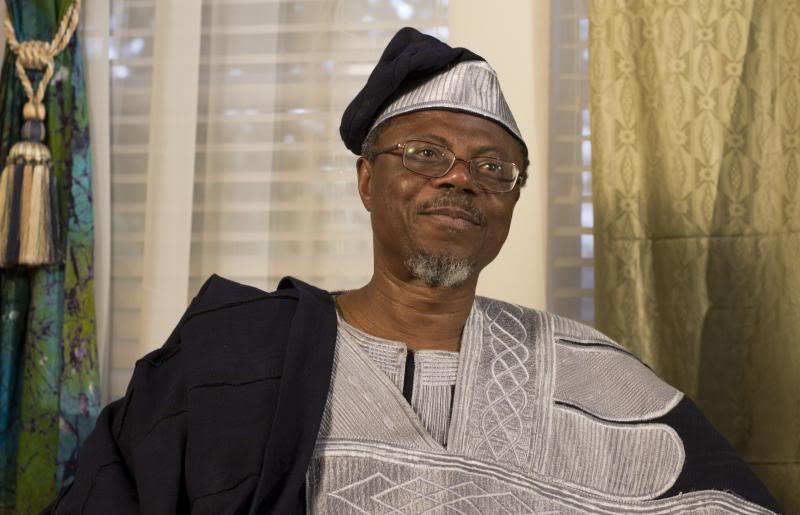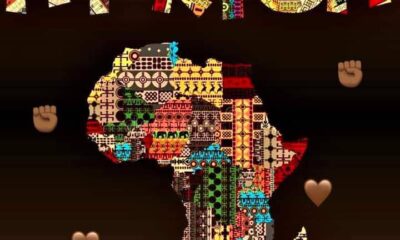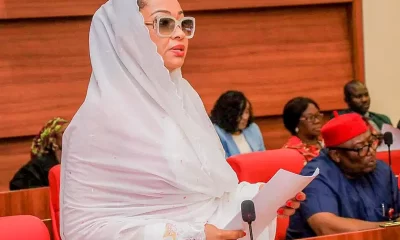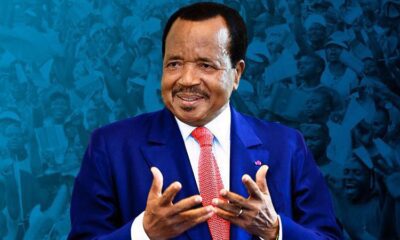National Issues
Where is the Green, Where is the Food? Sustainable Development for the Common Good -By Toyin Falola

…Sustainable development is part of modernism. In its economic aspect, this modernism has come at a cost: material wealth is not evenly spread; and the generation of wealth, most notably from oil in the Niger Delta, has endangered the lives of millions of people. In the attempt to seek economic modernisation, the country has created serious and damaging crises of resource depletion, environmental degradation, and a sharp gap between the haves and the have-nots. As the case of the Niger Delta shows, there is a gulf between the environment and development.
The quest for modern development sabotages progress itself by its failure to address the contemporary interwoven environmental, organisational and cultural problems. No doubt, the country has compromised the ability of the present and future generations to meet their own needs with regard to the economic, social, and environmental concerns of sustainable development.
The argument that Nigeria has not made efforts to formulate and implement some policies to attain modernism and sustainable development is far from the truth. There have been a multitude of conversations, numerous suggestions, myriad conferences, and many policies. Since the 1950s, declarative political statements and promises are legion. The results have been mixed; the largest economy in Africa is one of the world’s poorest nations. On the bright side, in 2014, Nigeria overtook South Africa as the largest economy in the continent. The GDP was valued in 2015 at $510 billion. Growing at a rate of 7 percent per annum, it became the 26th largest in the world. In reality, human development continues to lag behind on account of bad politics, gross mismanagement and corruption. The population of the poor keeps rising, sometimes put at almost 70 percent of the entire population; 50 percent of the population lives below poverty line, 33 percent lives in abject poverty, 85 percent of those in cities live in over-crowded spaces, about 40 percent of the population lack access to clean water, and 60 percent of the youth have no jobs. Not only is development not sustainable, it has been elusive: there is no green in the cities, and not enough good food in many stomachs; there is not enough done to meet the needs of the present generation, and there is certainly a limited focus on the future generations.
Developing countries permanently deal with the dual crises of political instability and economic underdevelopment. As the countries plan, they want to generate stability and development. How can their policies and programmes endure over time and transform people’s lives? Does development bring about modernity? The expectation is that basic human needs will be fulfilled, and that development is part of the overall modernity of society, linked to education, and the enhancement of the standard of living. There can be economic growth, as in Nigeria’s progress in the 1970s, but that development may not be sustainable, as in the continuous decline of Nigeria’s economy in the 1980s.
Nigeria is part of the geographic space of underdevelopment, often termed the developing world, or underdeveloped, or more generically as the Third World. At any time in Nigeria’s history, the government in power has supplied limitless propagandistic data about its success, massaging data and statistics that go against the popular narrative and increasing fate of poor people. Since it attained its independence in October of 1960, the narrative has been consistently centered around economic hardships, social injustice and inequalities, massive corruption, military infractions, and the loss of thousands of innocent lives due to poor conditions and violence. Moreover, it has also struggled to create and maintain a stable form of leadership, one driven by public service and the ability to transform the lives of the people they lead. Expressions of despair are common, based on an established uncertainty regarding progress and modernity. Complications are added by fractured politics, divisive religious and ethnic identities that produce their conflicting viewpoints. These issues collectively threaten the country. There are moments when terrorists hold the country hostage. On a daily basis, those who govern have to deal with multiple crises of political disparity, and insurgencies, including cases of assassinations and a civil war.
On a repetitive basis, the Nigerian government engenders hope in a plan of action. These various plans are formulated with a future in mind: they are codified within the template of sustainable development. The Constitution also recognises the need to pay attention to sustainability, and even specifies the protection of the environment as a special concern in Article 20: “The state shall protect and improve the environment and safeguard the water, air and land, forest and wildlife of Nigeria.” Various governments have provided data on the expansion of the agricultural, industrial and service sectors, the increasing number of universities, and reduction of rates of illiteracy. To the contrary, the media, critics and analysts continue to point to poverty, authoritarian leadership, and corruption.
The Global Dimensions
A brief history is necessary to put the idea of sustainable development into a timeline, if only to stress why the environment becomes its central platform, and how this has become of both national and global concern. As an idea and practice, there is nothing new with sustainable development. It has been with us for over two decades. A report by the World Commission on Environment and Development published in 1987, titled Our Common Future, zeroed in on the linkage to argue that governments can improve the standard of living of their people, improve relations between countries, meet the current needs, but without compromising the abilities and needs of future generations to also benefit from the environment. The report, now known as the Brundtland Commission Report, touches upon poverty, gender inequality, human rights, local economies, agriculture, industry, health care, and the environment. Concerns were also expressed about the global economy and climate change.
Thus, sustainable development has a global dimension, an idea that nations must do similar things with respect to a number of issues including economic growth, poverty, global interactions, and global inequalities. In 2002 at the UN World Summit on Sustainable Development held at Johannesburg in South Africa, over a hundred heads of state and their officials, together with many NGOs, came up with clearly articulated ideas that spelled out the global expectations to drive what all nations should do.
The Declarations that delegates signed stated the following:
1. We recognise that poverty eradication, changing consumption and production patterns, and protecting and managing the natural resource base for economic and social development are overarching objectives of, and essential requirements for, sustainable development.
2. The deep fault line that divides human society between the rich and the poor and the ever increasing gap between the developed and developing worlds poses a major threat to global prosperity, security and stability.
3. The global environment continues to suffer. Loss of biodiversity continues, fish stocks continue to be depleted, desertification claims more and more fertile land, the adverse effects of climate change are already evident, natural disasters are more frequent and more devastating and developing countries more vulnerable, and air, water and marine pollution continue to rob millions of a decent life.
4. Globalisation has added a new dimension to these challenges. The rapid integration of markets, mobility of capital and significant increases in investment flows around the world have opened new challenges and opportunities for the pursuit of sustainable development. But the benefits and costs of globalisation are unevenly distributed, with developing countries facing special difficulties in meeting this challenge.
5. We risk the entrenchment of these global disparities and unless we act in a manner that fundamentally changes their lives, the poor of the world may lose confidence in their representatives and the democratic systems to which we remain committed, seeing their representatives as nothing more than sounding brass or tinkling cymbals.
Global concerns are not misplaced and should be put in the context of increasing population, urbanisation and pressure on resources. In anticipation of a population explosion, three scholars have posed a series of questions which have been summarised thus:
1. “Will we have sufficient natural resources for the survival of our burgeoning population throughout this century?
2. Will we have enough resources to enable the growing populations to live a wealthier and healthier lifestyle?
3. Even if we have sufficient basic resources will we be able to survive the environmental consequences of their use?”
Conflicts are most likely to occur over resources, as we have seen the linkage between strategic minerals such as diamond, gold, and timber and wars in Central Africa, Sierra Leone and Liberia. Half of the world’s population live within river basins, and conflicts may occur over water sharing. Compromises are being suggested by prominent scholars, along four critical areas:
1. “Will the currently wealthy countries, and groups within them, be willing to reduce their consumption of the planet’s resources and also be willing to reduce the environmental effects associated with the current use of resources?
2. What are the political, social, and economic mechanisms that could be used to facilitate these compromises?
3. Will these compromises have to be enforced by multilateral (UN) actions, or can they arise out of negotiated agreements among the wealthy countries themselves, or between the wealthy and the poor countries?
4. What is to be expected of the poor countries? To what extent will their economic growth be reduced by the need to compromise on the environment?”
Various opinions have also been offered as to how to attain sustainable development by maximising income, maintaining resilience in the ecosystem, and generating stability in social and cultural systems. These and other suggestions usually generate controversies.
To be sure, there are dissenting opinions who think that the arguments in support of sustainable development are being exaggerated. In a concise manner, Peter P. Rogers, Kazi F. Jalal and John A Boyd have summarised the counter arguments by the critics of sustainable development, grouping them into four clusters:
1. Future generations are likely to be much better off than the present generation…This is primarily the contribution of modern technology…Critics therefore conclude that the greatest favour that the present generation can make to the future is to establish peace and security on earth and the principles of human rights and democracy.
2. When any natural resources, be they fossil fuels, water, or any others, become scarce, economic forces come into play; such scarcity is always related to a certain price, existing technological expertise, and substitutes..the world will not run out of natural resources.
3. The real State of the World is much better and healthier than many environmentalist claim.
4. Sustainable development can be damaging for the poor. Some critics believe that, on the pretext of promoting sustainable development and environmental protection, many rich countries are adapting protectionist policies by restricting imports of agriculture, forestry, fisheries, and other products from poor countries…They believe that resources released by not adopting such precautionary principles could otherwise be utilised to satisfy the basic needs of the poor in developing countries.
The Nigerian Experience
Sustainable development has become an endurable concept in the lexicon of development, although various aspects of it are no different from the preceding notions of economic underdevelopment. Conversations concerning sustainable development tend to be similar to those that were previously had regarding underdevelopment and “backward economies.” The approach favoured by many African scholars has been to relate sustainable development to virtually all aspects of underdevelopment. Sustainable development is now anchored to four pillars: economic, social, environmental, and political.
For Nigeria and other developing countries, emphasis is on the environmental and economic. Rapid development is needed, but it can imperil environmental issues. As the country needs more and more food to feed a growing population, it has to construct irrigation and drainage systems, use fertilisers and pesticides and clear forests, all of which can damage the environment. There is the growth of cities and the movements from rural areas to the urban ones, with consequences regarding pressure on land, services and utilities.
Economic development since the 1970s has produced both positive and negative consequences. The Nigerian economy “grew drastically due to the rapid expansion of petroleum sector” in the 1970s. This oil boom brought wealth, but this wealth was split unequally among Nigerians. Government officials and “people who had access to state power” were the sole benefactors of the wealth creating a separation between the government and its people. Concentration on the boom in the petroleum industry resulted in a “neglect of other sectors in that is necessary for a stable and balanced economy”. The economy relies on the export of raw materials. Profitable economies use their raw resources to export finished goods, thus minimising their dependence on others, and curtailing abusive trade relationships.
Today, sustainable development has become unavoidable, both at the Nigerian and global levels, both of which are inter-locked. Increasing population means that more and more resources have to be consumed, and not all resources are renewable. Industrialised countries consume a lot to maintain their status and generate more economic growth, while Nigeria and other less industrialised countries keep supplying the natural resources to meet the demands of developed countries, thus depleting their own resources to cater to others. Yet, Nigeria and other developing countries cannot accept their conditions, they must develop to assert themselves, to compete with the wealthy ones, and to create structures and institutions that can withstand global exploitation.
Sustainable development is always set in a comparative context, just as we compare developing countries to developed ones. In this comparison, we often make the mistake of not accounting for historical disadvantages, colonisation, imperialism and the corrosive effects of globalisation. Historically, British colonial rule resulted in the exploitation of Nigeria’s natural resources while it also slowed down economic growth by extorting human resources. Colonisation in general, from the exploitation of resources to destructive ethnic rivalries, has stalled the industrialisation that could have contributed to development. Nigeria has not had an equal opportunity to develop in the ways that European colonisers had, so sustainability is also a matter of having to compare and play catch-up. Another thing to note is that having an abundance of highly valuable resources does not always equate to great financial gains, as those resources could be exploited and used by others. The U.S, for example, has managed to exploit Middle Eastern countries for their oil resources, thereby impacting their development agenda. Exploited countries like Nigeria are still far less developed than powerhouses like the U.S and much of Western Europe. In short, the high poverty and economy based on processing of natural resources for the outside world make for an economic system that is not sustainable.
The current update, which forms the core of this paper, is more about the inadequacies. The problems are multi-faceted, and they pose serious environmental, economical, and social challenges to achieving sustainable development. There seems to be a lack of political will to address environmental problems. The most commonly cited example has been the issue of oil spillage in the Niger Delta Region, where unchecked oil drilling has inflicted tremendous damage on the ecosystem, health, and livelihood of the people of the region. Oil companies have done little to nothing to address this problem. Companies operating mainly in unregulated markets outside government-approved guidelines have implications for sustainable economic development. Local and multinational businesses have failed to care about the issue. The Nigerian government’s policing of policies is insufficient, and officials show limited commitment to punishing the companies.
The country keeps losing indigenous knowledge on how to create a non-Western path to sustainability. Communities have accumulated practices, ideas and wisdom on how their peoples have adapted to the environment over the years. For centuries before colonial conquest, agrarian societies were able to make a living from the environment with minimal damages. Such knowledge should not be discarded but integrated into modernist practices. If incorporated, the knowledge can be used to sustain a community and its culture, even in the face of looming multinationals. In rural areas, dominated by past culture and tradition, this is particularly important. When sustainable development is successful, local populations have the sustainable ability to make choices and to influence their own circumstances for the better.
In what follows, a contradictory paradigm is articulated: on the one hand, all the potentials and resources are there to create sustainability; yet on the other, the obstacles are many and there is as yet no system of sustainable development in place. On the one hand, changes are always underway, yet on the other hand current practices have negative impacts. On the one hand, Nigeria abounds with natural resources but on the other hand, it uses them very inefficiently and is greatly hindered by an energy crisis. Despite the vast supply of valuable natural resources that the country is capitalising upon, it still ranks among the poorest countries in the world. The economy and politics have to be positively transformed…
Concluding Remarks
…There must be continuity to planning and progress, as a current generation builds on the achievements of the past to create development for the future. A careless current generation can destroy both its past legacies and mortgage its future. The country has to meet the needs of the present without compromising its future. If the current needs of the present generation are not met, they are most unlikely to cooperate in the critical areas of preserving the environment. Thus, their needs have to be met, but also as a form of investment in the future. While short-term measures are important to avoid violence and political restlessness, the long-term impact is critical and must be balanced in relation to immediate contingencies.
In drawing from the aforementioned analysis, I would like to close with a dozen recommendations:
i. Policies and economic growth must pay attention to environmentally sound policies and safe practices, and stable ecological systems; to massive national poverty alleviation programmes and the development of agriculture to supply food at affordable prices to the majority of the country’s population. While figures of growth are important, numbers have no feeling, need no food, and cannot quantify desperation and anger. GDP and GNP figures do not quantify hunger.
ii. The overriding priority is to meet the needs of the poor (especially the provision of clean water, health care, sanitation, and energy to cook) and to do so by relating options to the durability of resources. The distribution of wealth from oil has always excluded the poor and those in rural areas. The overall wellness of the poor should be the primary determinant of measuring the country’s economic progress, rather than the mathematical formulas of the inflow and outflow of cash.
iii. Energy has become the topmost priority: without uninterrupted power supply, the country can no longer move forward and diversity its economy; technological advances are difficult; and the overall quality of life is diminished. The country has to invest heavily in energy technologies.
iv. A steady and stable bureaucracy is needed to overcome the perennial crises generated by the instability of political offices and changes in political parties in power. Politicians think in terms of popular self-serving agenda, and they have contributed to the deficiencies in governance as well as to reckless and inefficient extraction of resources.
v. Corruption prevents making difficult choices and prioritising them over time. Corruption and crises are inter-related, and it undermines the integrity of government and respect for leaders.
vi. The spatial organisation of the city needs considerable improvement to give room to better infrastructure. This is necessary to maintain a good economy, environment, and society.
vii. The country has to thrive economically to eradicate poverty, create time and disposable income for leisure, access to computers and Internet, improvements to living conditions in rural areas, and constant job creation to engage the youth.
viii. Security is paramount so also is the need to strengthen the institutions of governance to prevent conflicts, promote peace and human rights.
ix. Discipline from the government and its people must curb and curtail corruption; the strong hand of the government has to produce the sanctions to punish those who break the rules.
x. The quality of education must be such to allocate the best talents to each sector; to always look for innovators; to tie knowledge to the generation of finite resources; to produce distinctive technologies to meet basic needs; and to generate science and technological knowledge that will bring advancements in modernity.
xi. Both the public and private must enter into a coordinated sustainable partnership on relating business practices to sustainable development, ensuring that natural resources are not over extracted, preventing practices that destroy the environment.
xii. Youth have to become “leaderpreneur,” using the education and skills to become more innovative, to create basic technologies, to stand up and challenge leadership, and take control of their future. Asking youth to go back to basic farming is no longer an option, but asking them to infuse enterprises with innovative technologies and entrepreneurial skills will benefit the entire country.
Toyin Falola is President of African Studies Association and University Distinguished Professor and Jacob & Frances Sanger Mossiker Chair in the Humanities at The University of Texas at Austin, USA.
This is an excerpt from a Keynote Address delivered at the International Conference for Sustainable Development (ICSD) In Africa in the 21st Century, organised by the Postgraduate School, Ladoke Akintola University of Technology, Ogbomoso on June 4, 2015.











